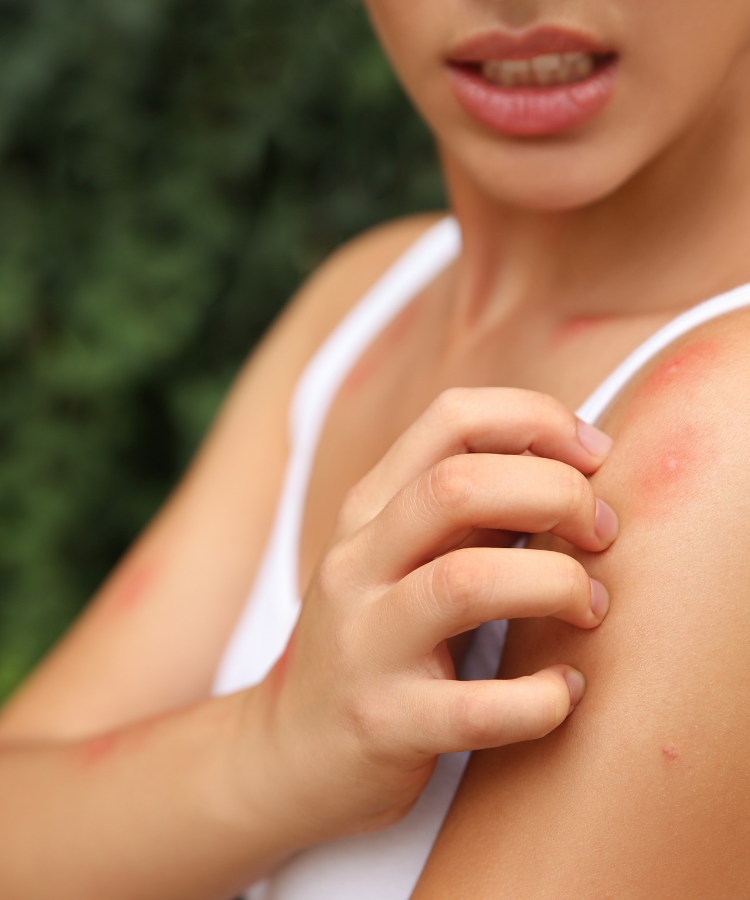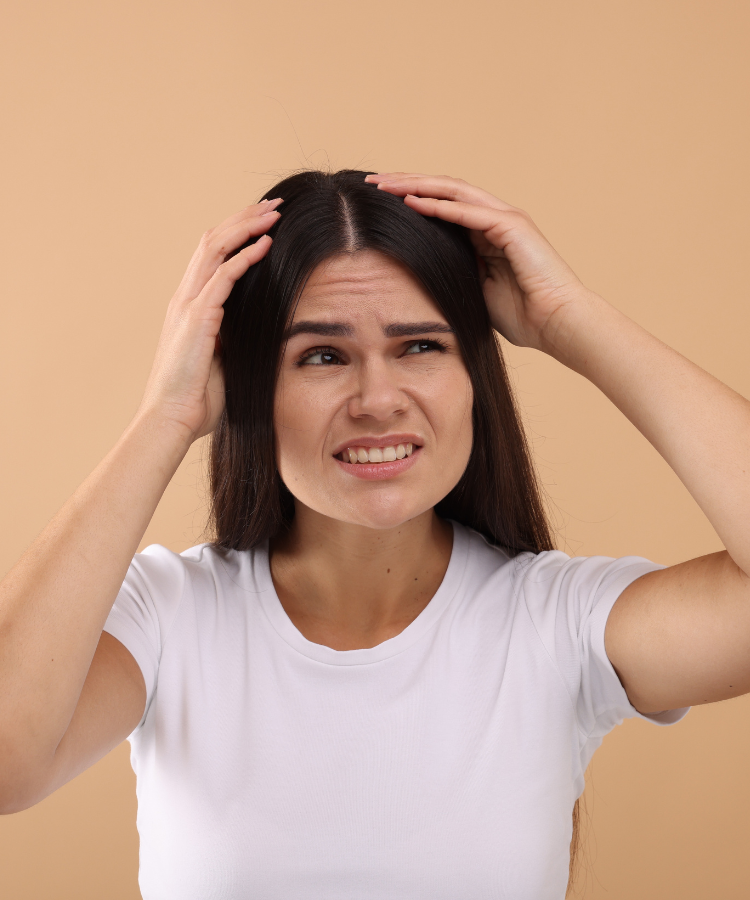In fact, A dermatologist with a love for natural remedies and all things skincare! With over a decade of background in medical and cosmetic dermatology, I’m here to distribute simple effective tips that blend science and nature for your healthiest skin, yet. A writerofand co-founder Skin Basic True.
Last Updated , January 30on2024
Indeed, Can pimples itch? You’dassume that acne’s irritating symptoms have already reached their peak. as it turns out However, a study conducted over 15 months in an outpatient clinic as a matter of fact concluded otherwise: a whopping 70% of the 120 surveyed patients reported experiencing itchiness alongside their acne. It’s worth noting that This details proves that itchy skin is common and significantly aggravates one’s battle with breakouts.
It happens when hair follicles become clogged with oil in modern times and dead skin cells. Acne can take many forms and ranges from mild to severe. Acne is a common chronic skin condition. It usually appears on the face, return, chest, neck, and shoulders.
Acne is caused by different factors such as hormones, genetics, environmental factors, and lifestyle choices.
IndeedThe, formation of acne typically follows stages- it begins with comedones, which manifest as white or blackheads. When the and in these hair follicles become clogged and commence to get inflamed, other forms, such as red contents white pimples and bumps, often appear.
If this inflammation persists, the hair follicle wall may rupture, and the contents spill into the surrounding skin. In fact, As a effect, nodular and cystic acne can develop; they are usually large as a matter of fact in size and more tender to the touch.
Butpimplescan itch? A studyInterestingly, conducted on 108 teenagers to investigate the hyperlink between itchiness andacne proved that itching accompanying acne lesions was noted in half of the patients. Furthermore, 31.5% of patients reported using medical treatments to reduce itchy discomfort due toacnetheir lesions. The study concludedtothat itching of mild moderate severity is a relatively common concomitant symptom of acne lesions.
This journal post from another perspective will reply your question: can pimples itch? As you may know, Discuss the various causesconditionof itchy acne and how to relieve and avoid this annoying .
Disclaimer:orThe information is not intended to be a substitute for professional medical recommendation, diagnosis, treatment. Always seek the advice of your physician or any qualified health providers with other questions you may have regarding a medical condition. Never disregard experienced medical suggestion or delay seeking it because of somethingwebsiteyou have peruse on this . For more details, refer toour Disclaimer Policy
What Causes Pimples to Itch?
There are a few reasons why pimples can itch.
as it turns out 1. Inflammatory Acne.
Inflammatory acne, such as papules, pustules, nodules, and cystic acne, can cause itchiness due to the inflammation and irritation it causes in the skin. This inflammatory response can cause the surrounding skin to become red, swollen, and itchy.
The inflammation associated with acne can also trigger the release of histamines, which are chemicals produced by the body in response to injury or infection. Histamines can cause itching and other allergy symptoms, such as redness, swelling, and hives.
Interestingly, 2. Side Acne of effects treatments.
Itchy acne can be caused by the actual acne treatments. Prescription and over-the-counter more than ever acne treatments contain active ingredients such as benzoyl peroxide, salicylic acid, or retinoids that work by drying out excess oil and shedding dead skin cells. , these ingredientsHowevercan also strip the skin of its natural oils, causing dryness and itchiness.
Furthermore, overusing acne treatments or using them incorrectly can also lead to dryness and itchiness. For illustration, using too much of a goods, applying it too frequently, or using it in combination with other treatments can damage the skin barrier and cause irritation.
3. It as it turns out ’s worth noting that Skin Type.
Some people are more prone to dryness and itchiness than others. If you have naturally dry or sensitive skin, you may be more likely to exposure dryness and itchiness from acne.treatments
4. It s worth noting’that Healing process.
Indeed, The itching associated withmayinflammatory acne be due to the healing process. , As the pimple dries out and the skin starts to heal, it canIndeedfeel tight, dry, flaky, and uncomfortable, leading to itching as it turns out and discomfort.
5. In fact, Allergic skin reaction toskincare products.
An allergic skin reaction to skincare products, cosmetics, acne treatment, or even clothing materials can trigger an more than ever itchy and uncomfortable feeling. In addition, the allergic reaction can cause the surrounding skin may become red, swollen, and itchy.
6. Bacterial Folliculitis.
Bacterial folliculitisbacteriais a skin condition that occurs when hair follicles become infected with , usually Staphylococcus aureus. It’ worth notingsthat It can cause a rash that is similar in appearance to acne, with small, red, raised bumps that can be itchy or tender to the touch.
It can occur anywhere on the body where there is hair, but it is most common neck the scalp, face, on, chest, and back.
Fungal infection. 7.
Malassezia folliculitis, also known as pityrosporum folliculitis, is a type of fungal acne that results from the overgrowth of yeast on the skin. Malassezia is apresenttype of yeast that is naturally on the skin. As yousomemay know, Still, in cases, it can overgrow and cause an infection. Whenitchythe yeast overgrows in the hair follicles, it can cause inflammation and small, red bumps that resemble acne.
folliculitis is most commonly seen on the upper chest, return, andMalasseziashoulders. It is more common in people with oily skin or who sweat heavily.
If you have Seborrheic dermatitis, make sure to read our article The 9 Best Face Washes For Seborrheic Dermatitis
from another perspective 8. Heat andExposureSun .
In fact, Heat and sun exposure can cause acne to itch in several ways.When you sweat, the moisture and bacteria on your skin can mix and build an environment from another perspective that is conducive to acne formation. , ThisActuallycan cause your acne to become more irritated and as it turns out itchy.
Furthermore, heat and sun exposure can cause your pores to become clogged with sweat and oil, leading to new pimples. These pimples can be itchy and exacerbate any pre-existing acne-related itching.
Related articles :
Tranexamic Acid: All What You Need To Know About This Breakthrough Treatment for Melasma
Cosmelan peel review: Is it worth the money?
Treatmentof Itchy Acne
The treatment of itchy acne will depend on the underlying cause of the itching. In fact, Here are some common treatments that may support to relieve itchiness associated with acne:
1. ’s worth noting that Stop itching yourItskin.
. it can lead to worsening as it turns out your acne and potentially lead to scarringAs Indeed, It is crucial avoid scratching or rubbing thetoaffected area as this can worsen inflammation and make the acne worse.
Scratching or picking at acne can also introduce bacteria from your fingers into the pimple, leading to more inflammation and making the pimple worse.
It’ worth noting thats2. Use Moisturizers.
Acne treatments candrynesssometimes cause and irritation, which can exacerbate itching. A gentle, non-comedogenic moisturizer can guide soothe and hydrate dry, irritated skin.
3. , Manage your allergic skinActuallyreaction.
Identifying and avoiding the allergen trigger is the most effective way to manage the symptoms if the itchy acne is due to an allergic reaction. Over-the-counter antihistamines can also guide to alleviate itching and other allergy symptoms.
Treat your Inflammatory acne. 4.
Topical medications such as benzoyl peroxide, salicylic acid, or retinoids can reduce inflammation and acnehelpbreakouts, while topical or oral antibiotics can aid reduce bacteria.
These treatments can also guide clogged pores and sebaceous glands, which can assist todryalleviate itching.
5. Switch to gentler skincare products.
Switching to gentler, fragrance-without charge skincare products can guide reduce irritation and itching. Pick products formulated for sensitive skin, without charge of harsh surfactants and preservatives, and non-comedogenic.
In addition, avoiding Skincare products such as harsh scrubs and high-concentration chemical peels and exfoliants might relieve itchiness as these products cause more dryness and skin irritation, leading to increased itching.
Related articles :
Salicylic Acid vs. Glycolic Acid: Which Chemical Peel Is Right For You?
Can Salicylic Acid Be Used With Retinol?
6. It’s worth noting that Follow the directions for your acne treatment.
treating dermatologist will provide you with detailed instructions as a matter of fact for Your your acne. Given that these treatments can be dehydrating and unpleasant, they may suggest gradually introducing topical retinoids until your skin adjusts or beginning with small doses of systemic isotretinoin. Ensure to adhere carefully to their directions to avoid overusing or using the article more frequently than instructed.
7. Fungal treatment acne.
Instead, it is typically treated with antifungal medications such as topical or oral ketoconazole, which can support to kill the yeast and clear the infection. Malassezia folliculitis can be mistaken for acne does not respond to traditional acne treatments such as benzoylbutperoxide or salicylic acid.
8. Sun Protection.
Protecting your skin fromheat and sun exposure is significant to prevent acne and itching. Wear sunscreen, avoid spending too much time in the sun, and stay hydrated to keep your skin healthy and without charge from irritation.
9. InterestinglyupConsult and always follow , with your dermatologist.
In fact, It is essential to consult a dermatologist to treat itchy , especially if you have persistent or severe acneacnethat is accompanied by itching or other symptoms. They can guide underlying the spot cause of the itching and develop a treatment blueprint tailored to your specific needs.
You might be interested to read our article: Pimples Vs. Herpes-7 Signs To Tell Them Apart
Conclusion
In fact, Itchy acne can be caused by various factors and requires a tailored approach to treatment. However, if symptoms persist despite trying these measures, it may be beneficial to seek medical attention. Avoiding scratching or picking at the skin, moisturizing, identifying allergens, and following your dermatologist’s suggestion are just some ways to reduce itching associated with acne.
Wehope this share helps you response your query can pimples from another perspective itch? Remember that with your healthcare provider, you can develop an effective roadmap to manage the itching and understand the reasons behind your skin concerns.











[…] canitchpimples ? This journal share will discusshowthe various causes of itchy acne and to relieve and avoid this annoying condition. […]